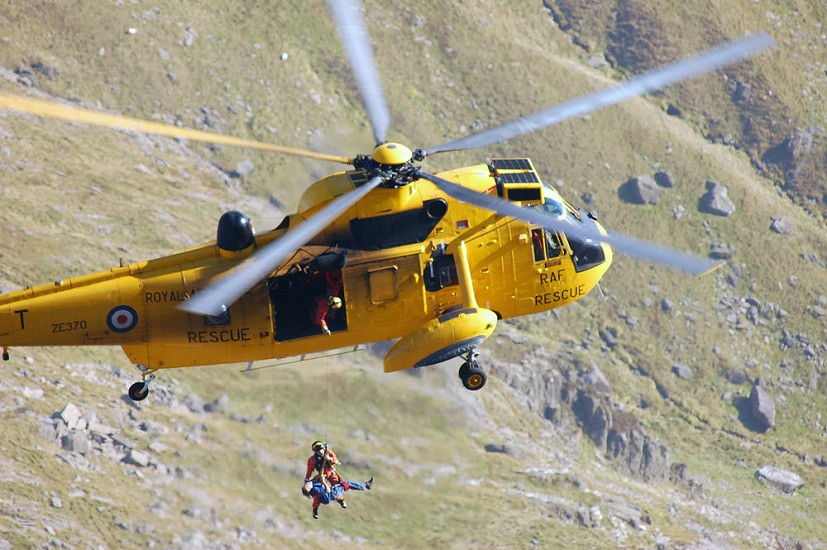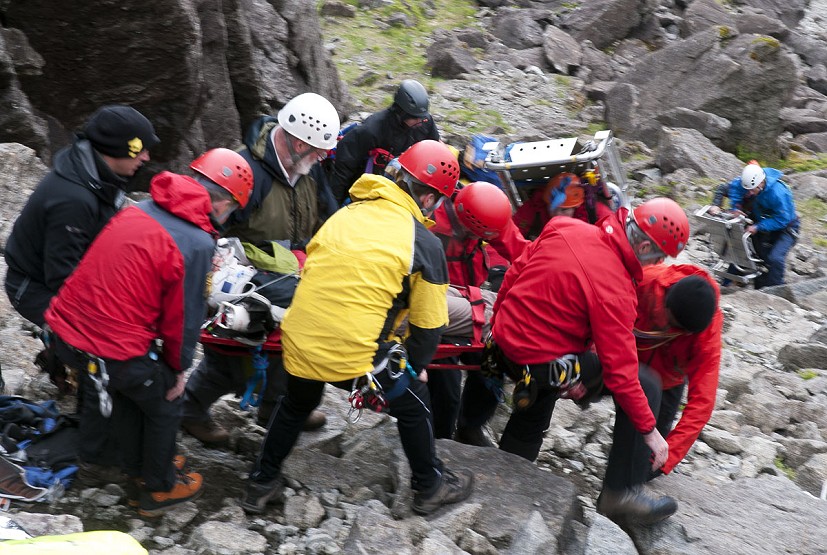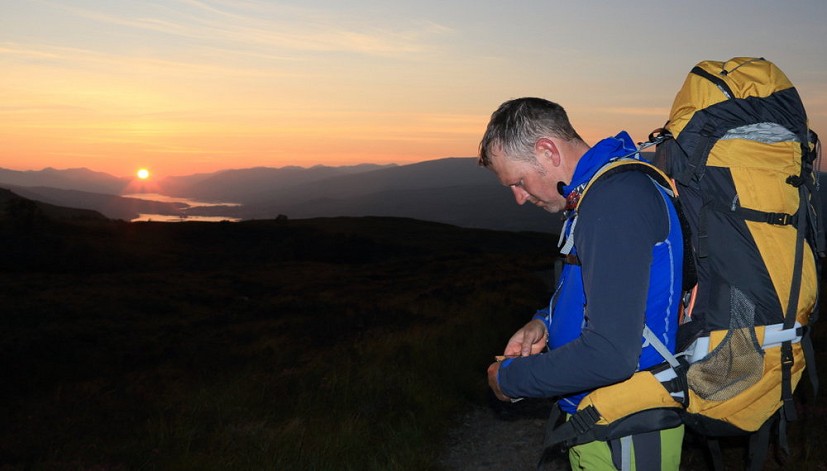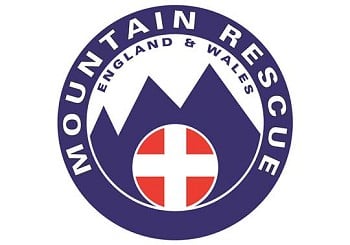How - And When - To Call Mountain Rescue
When is it OK to request help from hard-pressed MRTs? And if you do need to call, how should you go about it? We asked the experts
Britain's civilian Mountain Rescue Teams are charities staffed by dedicated unpaid volunteers. Rescuers work on their own time, often putting themselves at risk in the process. Pressure on these services is mounting across the country, with more call-outs than ever before. Any of us could find ourselves in genuine need, and if things go seriously wrong it's reassuring to know that Mountain Rescue will be there for us. But a great number of call-outs are entirely avoidable, and too often people could have dealt with their own issues if only they'd been better prepared and a little more self-reliant.
An over-dependence on technology such as smartphones has been blamed for some of the increase in incidents. Coupled to this, many who find themselves asking for help have simply failed to take the outdoor environment seriously, paying scant attention to basic skills, clothing and equipment. Perhaps at the root of it all is a misplaced assumption, that safety is ultimately someone else's business. Yet when we go to the hills it ought to be on the basis that we are responsible for ourselves and our party; that being rescued by someone else is not a right; and that making that call should only ever be a last resort.
So when is it OK to ask for help? And if you do, then how should you go about it? We've asked the experts.
What is a genuine emergency?
'For us as a team we look at the callout and ask “is there an injury or a threat to life” in determining whether or not we will provide a response' says Rob Johnson, chairman of Llanberis Mountain Rescue Team.
Britain's busiest MRT, the Llanberis team had its busiest ever month in August 2015, with more than one incident per day (see UKH news here). Many of these incidents were in response to parties ill-equipped for the mountains, people who really ought to have been able to get themselves out of trouble.
'If people ask themselves this question - “is there an injury or a threat to life” - and the answer is no then they can probably resolve their issue for themselves' says Rob.
'Examples of the types of call we would not respond to are people who are cold, people who are lonely (we have had it!), people who are lost but the weather is improving and if they sit it out they will be able to see again. If people are lost and they call us we will try and give advice over the phone about how to descend safely rather than providing a full team call out. If people are not sure they can always ask us.'
"The big issue for us is to educate people that mountains need some preparation by way of equipment carried and skills learnt" says Rob. "People need to be able to be self sufficient when the weather closes in and not rely on being able to follow other people. To do this they need to be able to use a map and compass. They also need a head torch for when it gets dark and some boots to provide ankle support. It's also good to remind people that its much colder and wetter on the summit of a mountain and so they need some warm layers and waterproof clothing.'"
How to call for Mountain Rescue
Assuming you do genuinely need help then the first step is to alert the authorities as quickly as possible. At this point you'll probably reach for the mobile...
Call it in by phone:
Dial 999 or 112, ask for Police and then Mountain Rescue
'The use of mobiles has grown enormously in the last ten years and the majority of calls for mountain rescue help are made by mobile' say Mountain Rescue England and Wales (MREW), the umbrella body for rescue teams.
'The days of running down the hill to the nearest telephone box to summon help – it would appear – are well and truly over.'
That said, mobiles are not 100% reliable. Batteries can run flat at the worst moment, while network coverage cannot be relied upon in the mountains.
Here's MREW's advice on getting the best out of your phone and maintaining contact once you've called in:
- Keep your mobile in a plastic bag somewhere warm and accessible, where you can hear it in the prevailing conditions. And pack a spare battery in a separate plastic bag.
- If the signal is poor, stand still! Keep the phone in one position to maintain the connection.
- Shelter the microphone from the wind and increase the receive volume settings as necessary.
- Fully charge the battery (and the spare!) before setting off.
- Minimise your call time to conserve battery power.
- Schedule your point of contact calls and switch off by arrangement, when not required.
- The police or coastguard may establish a calling schedule with you - for example, every 20 minutes or so – between which you may arrange to turn off your mobile phone.
- Check for coverage with every phone in the party. Use one phone at a time to preserve batteries – or swap batteries.
- If there's only one phone and it shows no coverage, disconnect the battery for one minute and reconnect. Switch on and try again.
- If you cannot move and/or have insufficient network coverage to make a voice call, try sending a text message from all the available mobile phones in your party, to your point of contact.
- In a number of mountain areas, the deaf, hearing and speech impaired can now send an emergency 999 text message to a dedicated number. In Cumbria, for example, this is 07786 208999. Refer to the appropriate police authority for more details – before you set out!
Text it in by phone
It is possible to send an emergency message by text to 999 or 112. It's best to register your phone with this service beforehand. See details here
What to Say When You Make the Call
You've dialled 999 or 112 and asked for Police and then Mountain Rescue
Now be ready to give a CHALET report, say MREW:
C Casualties – number, names (and, if possible, age); type of injuries, for example, lower leg, head injury, collapse, drowning etc.
H Hazards to the rescuers – for example, strong winds, avalanche, rock fall, dangerous animals.
A Access – the name of mountain area and description of the terrain. It may be appropriate to describe the approach and any distinguishing features such as an orange survival bag. Information on the weather conditions at the incident site is useful, particularly if you are in cloud or mist.
L Location of the incident – a grid reference and a description is ideal. Don't forget to give the map sheet number and please say if the grid reference is from a GPS device.
E Equipment at the scene – for example, torches, other mobile phones, group shelters, medical personnel.
T Type of incident – mountain, aircraft, train, etc. Be prepared to give a brief description of the time and apparent cause of the incident.
OK, but what if there's no phone signal?
Head for higher ground
Mobile phone coverage relies on a line of sight to the nearest cell. If there's no signal exactly where you are, would it be possible to head for a more prominent point nearby? 'Take care not to get lost in the process and remember that sometimes a ten minute walk up the hill is sufficient to get you a signal, rather than running down the valley for an hour' say MREW.
Split up and send for help?
Hypothetically, let's say a member of your party is injured and immobilised. Are there enough competent people remaining that at least one person can stay with the casualty while another - preferably two - legs it on foot to the nearest point at which phone reception is available - or failing that, civilisation in the valley? Dividing the group is a tough judgement call, especially after dark or in foul weather. Sending off the inexperienced or ill-equipped might even risk spreading the incident over a larger area and making rescuers' work more difficult, so think carefully.
Whistle
It weighs next to nothing and could just save your life: the good old fashioned whistle is a hill-walking essential. In the first instance it might alert passers by to your predicament in a situation in which you've no other means of summoning help (you're alone, out of phone range, with a broken leg perhaps). Once aid is on its way keep whistling to help guide rescuers to your location. The international distress signal is six long blasts repeated at one-minute intervals.
Torch
How many rescue call-outs might have been avoided altogether if the callers had only remembered a torch? Whatever the weather, whatever the time of year and no matter how short your planned walk, you should always carry one in the hills. Fully charged batteries are a must, and on top of this it's sensible to add spare batteries or - belt and braces - a spare torch too. As with the whistle, the signal to summon help is six long flashes at one-minute intervals.
About Mountain Rescue England and Wales
Mountain Rescue England and Wales is a registered charity comprising members of mountain rescue teams and regions and representatives from cave rescue.
There are nine mountain rescue regions and 48 teams. All these organisations are independent charities, made up entirely by volunteers.
Search dog handlers are team members who undertake extra specialist training with their dogs. There are five dog groups within MREW –SARDA England, SARDA Wales, SARDA South Wales, Lake District MRSD and NSARDA.
UK Mountain rescue teams work under the auspices of the police and are called out through the 999 system. They may be called to work with any of the statutory services – police, fire and ambulance – depending on the nature of the incident. They also frequently work with RAF, Air Ambulance and Royal Navy helicopters, and HM Coastguard and cave rescue teams.





